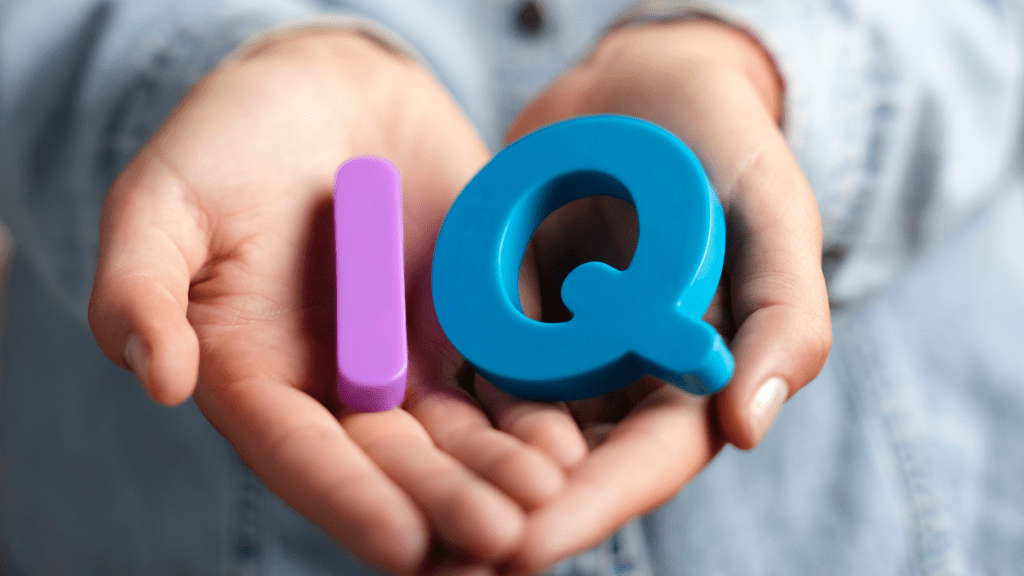Montessori is a type of educational method that emphasizes hands-on learning, independence, and self-directed exploration. Montessori’s focus on independence, exploration, and self-directed learning can all lead to higher IQ scores in children. This article will discuss how Montessori’s teaching methods can increase children’s IQ scores.
What is Montessori Education?
We have all heard of Montessori many times, but let us tell you what and how Montessori education is.
The Montessori Method was developed for children from birth to six years old. It is based on the idea that children are naturally curious, independent, and capable of learning through their own experiences. In the early 1900s, Dr. Maria Montessori observed young children’s spontaneous curiosity and their desire to learn by doing things for themselves. She developed a system of education called the “Montessori Method” based on her observations of how they learn best.
The Montessori method aims to support children in their natural curiosity for learning about their environment. It gives them the freedom to learn and explore while the educator’s role is to observe and guide. Montessori education is not standardized, with variations among each school or classroom in regard to how it is implemented. It is even proven in many studies that Montessori students excel in academics and have higher IQs and EQs.
Teaching Methodology
Montessori is a teaching method that focuses on the individual. This means that each child is given their own space, and they are able to move around freely as they wish. They also have a lot of independence in their learning, and they are encouraged to explore on their own. Montessori’s focus on independence, exploration, and self-directed learning can all lead to higher IQ in children. This article will discuss how Montessori’s teaching methods can increase children’s IQ.
Montessori’s teaching methods are focused on self-directed learning. This means that the children have the independence to learn with no time limit and interruption. They aren’t required to follow guidelines or steps, but they choose what they want to do based on their own interests and curiosity. Independently exploring can lead to higher IQ scores in children because it helps them to develop their own understanding of the world.
Development in Montessori Method
Children learn through a process called “sensorial exploration,” which is a key component of the Montessori Method. Children enter school at age three and are expected to develop their intellectual abilities effectively enough that they can master functional literacy by age six. Montessori education has been said to have a positive effect on children’s creativity because it is based on experimentation and discovery.
The development of children in Montessori schools is influenced by a number of factors, including the atmosphere created for care and education, and the teaching methods used to teach children through unveiling the sense of sight, sound, and touch in response to materials that are involved with their own activities. The Montessori Method is a child-centered approach that requires children to develop the intellectual, social, and emotional skills necessary for independent learning.
Montessori and IQ
Montessori education has been found to increase IQ scores in students who have been exposed to it as compared to students who have not been exposed to it. Montessori education is designed around observation and experimentation by the child. Children are given freedom in this method, with little or no direct instruction as to what to do or how to do it.
Teachers let children explore their environment, which is enriched with materials that support sensory exploration and the development of the senses. Montessori materials are placed at the child’s height to choose from without an adult’s intervention so that they can be explored and manipulated appropriately.
Montessori education has been said to have a positive effect on the IQ of students. Montessori education is designed around observation and experimentation by the child. In Montessori education, children are encouraged to develop their senses, including touch. The use of concrete materials and hands-on activities are an integral part of the Montessori Method for teaching children how things work in the natural world.
7 Reasons Why does Montessori Increase IQ?
Montessori is an alternative to traditional schooling and, and it emphasizes freedom of expression and creativity. The idea behind this method is that children have a natural curiosity, so they should be given the chance to explore their surroundings, learn from their mistakes and find out what interests them. Here are 7 reasons why Montessori increases IQ:
- It helps children develop self-confidence.
- They learn through play, not just by memorizing facts.
- They can get help from peers when needed, not just from teachers.
- They are more engaged because they have control over their own learning process.
- They can explore different areas of interest without boundaries or limits.
- The environment builds curiosity, which is linked to a higher IQ.
- They develop greater awareness and empathy for other people and the world around them.
How does Montessori Increase IQ?
A lot of research has been done on the benefits of Montessori education for children. However, there are many ways that a child can benefit from this type of schooling as well. Let us understand how Montessori education may increase the child’s IQ:
- Children will have more time to work or study because they won’t have to spend hours on homework every night like they would in a traditional school setting.
- Children will get more sleep because they don’t have to wake up early.
- Children will be more focused because they won’t have to worry about work or homework.
- Children will have more time for research and experiment.
- Children are taught using concrete materials like real-life objects and toys, which can teach a wide variety of skills through hands-on learning.
- Children learn to learn and not to get marks.
- There are fewer distractions in the classroom as the environment is prepared to keep a child’s development needs in mind.
- Children will learn to work with other students and adults as a team.
- Children will get more social because students often participate in activities individually and in groups.
- Children will learn to take responsibility for their own learning.
Final takeaway
The Montessori Method is based on the idea that children develop naturally and it doesn’t make sense to teach them things before they’re developmentally ready for it. Montessori schools are not only teaching children how to read and write, but they are also teaching them how to think and reason.
Try out our information cards, and worksheets, and read other blogs to learn how Montessori education helps a child to grow at their full capacity.



